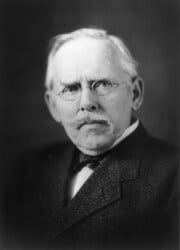“Some foolish persons turn their backs on the wisdom of God and follow the allurement of fickle fashion, the attraction of false popularity, and the thrill of the moment. Their course of conduct so resembles the disastrous experience of Esau, who exchanged his birthright for a mess of pottage.
“To illustrate, may I share with you the results of a survey conducted by a reputable organization and reported in a national magazine.2 The survey was entitled, “Would You, for Ten Million Dollars?” Let me ask you the same questions which were asked in the survey:
For 10 million dollars in cash, would you leave your family permanently?
Would you marry someone you didn’t love?
Would you give up all your friends permanently?
Would you serve a year’s jail term on a framed charge?
Would you take off your clothes in public?
Would you take a dangerous job in which you had a 1-in-10 chance of losing your life?
Would you become a beggar for a year?
“Of the people polled, 1 percent would leave their families, 10 percent would marry lovelessly, 11 percent would give up friends, 12 percent would undress in public, 13 percent would go to jail for a year, 14 percent would take the risky job, and 21 percent would beg for a year.
“Where money, rather than morality, dictates one’s actions, one is inclined away from God. Turning away from God brings broken covenants, shattered dreams, vanished ambitions, unfulfilled expectations, crushed hopes, and ruined lives.”
Thomas S. Monson
| "Decisions Determine Destiny"
Topics: Decisions, Money, Morality





